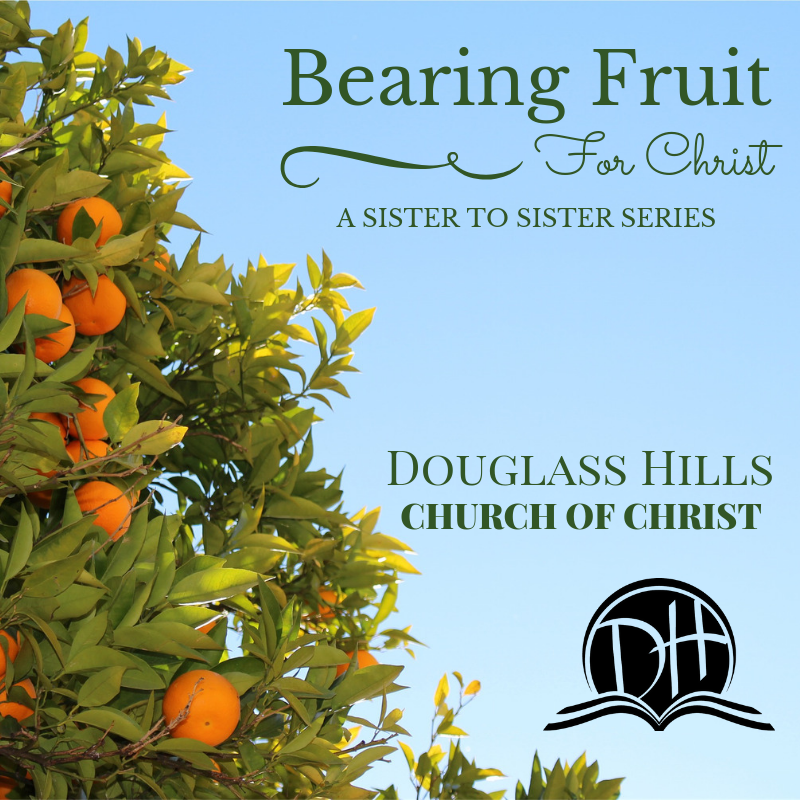Growing In Godliness Blog
Blessing
Our Spiritual Heritage
Tuesday, May 05, 2020 Our Spiritual Heritage
Our Spiritual Heritage
By Kim Davis
Where are you from?
It is a common question we ask one another when making new acquaintances. The answer provides a little insight into one’s past. Maybe the question is asked because one is looking for a commonality, or wants to understand the background behind another’s dialect, or perhaps it is pure curiosity.
I research genealogy as a hobby. I am captivated by it and can spend hours in front of the computer looking at census records, immigration records, ship passenger lists, and other ancestral information. I often think about the time I spend reflecting upon the past. Does it really matter who my ancestors were? Of course, our salvation does not hinge upon it. But in many respects, our individuality is a direct reflection of our ancestor’s and their decisions.
Our ancestors decided whether or not to believe in God. If so, how and where would they worship God? They made decisions about what type of values they would instill in their children. They determined how hard they would work at their marriage. They decided how to teach their children to respect and serve others.
Each generation processes what they have or have not learned from their parents, grandparents, or other important figures, while also considering additional outside influences to then face the same decisions.
Generation after generation of imperfect Christians will face struggles, heartaches, disappointments, and discouragement. Each generation will stumble along the way but they must continue to follow Christ to the best of their ability. Each generation has a responsibility to learn, to grow in knowledge and faith, and to teach others about Christ. This is the only way the perfect law can be spread to the next generation. Deut. 6:5-7 says “You shall love the Lord you God with all your heart and with all your soul and with all your might. And these words that I command you today shall be on your heart. You shall teach them diligently to your children, and shall talk of them when you sit in your house, and when you walk by the way, and when you lie down, and when you rise.”
We cannot let Satan derail us. I do not want to be the person in my family tree who decides to stop following Christ. I want to do everything in my power to continue this tradition of worshipping God and serving him faithfully and influencing my children to do the same. We often hear “it does not matter where you came from, what matters is where you are going?” Where we come from determines our starting point in life but what truly matters is the point where we end. Are we ready to meet our Redeemer when our time comes?
At Douglass Hills, we teach our children about their spiritual heritage. When you think back to Abraham and the unbroken lineage that brought us our Savior, it is a marvelous wonder that certainly was planned.
“Our children are a heritage from the Lord,” Psalm 127:3. I believe the Lord shares John’s sentiment written in III John 1:4, “I have no greater joy than to hear that my children are walking in the truth.”
How are we individually contributing to our own children’s spiritual heritage, or to the spiritual heritage of other children at Douglass Hills? It is the single most important thing in their life and demands our full attention. Providing for our families is important. Leisure activities are important. Family time is important. Let us all make sure we are not letting the important things crowd out the most important, which is Christ. Knowing Him. Teaching Him. Loving like Him. Trying our best to be like Him.
The Blessing of God's Word
Tuesday, April 05, 2016 The Blessing of God's Word
The Blessing of God's Word
By Wyatt Taylor
We live in a remarkable age. Thanks to the blessings of modern technology, we have nearly instant access to all kinds of information – from breaking world news to the most insignificant sports statistic. I rely on this so much that it is hard to recall a time when this kind of access wasn’t a part of my life, but really, it has only come about in the last 10-15 years. How did anyone live in a world before Google?
Jesus’ words in Matthew 13:16-17 remind us that we are blessed in another, more important way. There was a time, after all, when humans did not have access to the kind of spiritual information we have at our disposal in the pages of scripture today. Jesus says, “But blessed are your eyes for they see, and your ears for they hear; for assuredly, I say to you that many prophets and righteous men desired to see what you see, and did not see it, and to hear what you hear, and did not hear it.” Christ’s disciples, of course, saw the Son of God and heard Him teaching of the fulfillment of the Law in Him. Jesus reminds them that the prophets and righteous men that came before, many of whom we read about in the Old Testament today, were working with limited information. In their day, God’s plan had not yet been fully revealed. Many of the things they prophesied they did not understand. As we study the Bible today, we can see the arc of God’s plan throughout history: how Christ was prophesied at the beginning, how God worked through His people to bring Him into the world to die for our sins, and how he established His Kingdom. Christ’s words here remind us that we should not take this for granted, since God’s people have longed for such information throughout time.
Backing up a few verses to Matthew 13:10-15, Jesus is asked by the disciples why he teaches in parables. In response, Jesus quotes a passage from the prophet Isaiah (Is. 6:9-10), “Hearing you will hear and shall not understand, and seeing you will see and not perceive; for the hearts of this people have grown dull. Their ears are hard of hearing, and their eyes they have closed, lest they should see with their eyes and hear with their ears, lest they should understand with their hearts and turn, so that I should heal them.” One of the tragedies of the gospels is that those people who should have received Jesus most readily, the Jewish leaders of the day, were the very ones shouting “Crucify Him!” How did they mistake the Son of God for a blasphemer? Jesus tells us here – “the hearts of this people have grown dull.”
It would be an even greater tragedy for those today with such easy access to the word of God to neglect it and be forever lost. May it never be said of us that our hearts have grown dull to the gospel! Instead, let us resolve to open God’s word, search it with hearts open to the truth, and in understanding turn to Jesus Christ for the healing that only He can provide.


